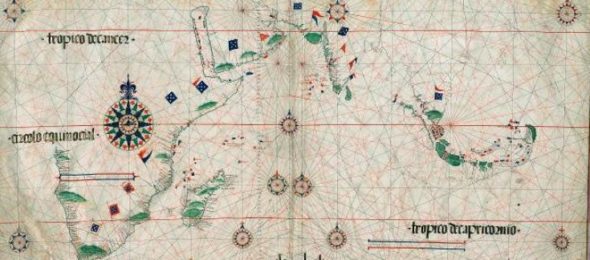Global Sea Routes: A historical geodatabase of European global navigation (1500-1900)
Volunteers are needed to assist with the development of a new research database, Global Sea Routes.
Based on the premise that the history of navigation is important for understanding modern globalization processes, the Global Sea Routes project (GSR) aims to answer the question: how can we represent the historical evolution of the duration time of different sorts of early modern and modern European transoceanic sea voyages on a synoptic and comparative scale?
The project originates from a global history research perspective and, in particular, from interests related to the processes of European expansion, to exploration sea voyages, and to scientific, military, and commercial sea expeditions that have taken place with increasing intensity over the centuries. Computer technology allows us to create a tool capable of representing visually historical (c. 1500-1900) data with a geodatabase accessible online. In order to achieve this, the project’s coordinators rely mainly on two kinds of sources: printed voyage accounts and unpublished logbooks. The project has a twofold methodological objective: to enhance underused sources of exceptional value and interest for the history of navigation, and to carry out an advanced experiment in the field of digital history.
In 2019-2020, GSR developed a prototype of the geodatabase and tested it by entering data on a small selection of voyages. Current ongoing developments include – but are not limited to – data entry on voyages of the English East India Company and Royal Navy, the French Compagnie française pour le commerce des Indes orientales, and the Dutch Vereenigde Oostindische Compagnie. The database includes data concerning each ship name, type, construction details, the crew, available navigation instruments on board, name of the captain, fleet typology and nationality, departure and arrival dates and place names, sea routes including stopovers, distances covered (nautical miles) and average speed (nautical miles/duration in days), as well as data on maps used and/or perfected during the voyage, and references to secondary and primary sources. Many opportunities exist to expand the database, including adding data related to voyages originating in non-European nations.
Anyone interested in this project, especially those interested in assisting with data entry, are encouraged to email Guido Abbattista, Professor of Modern history and Global history at the University of Trieste, Department of Humanities, at gabbattista@units.it.








